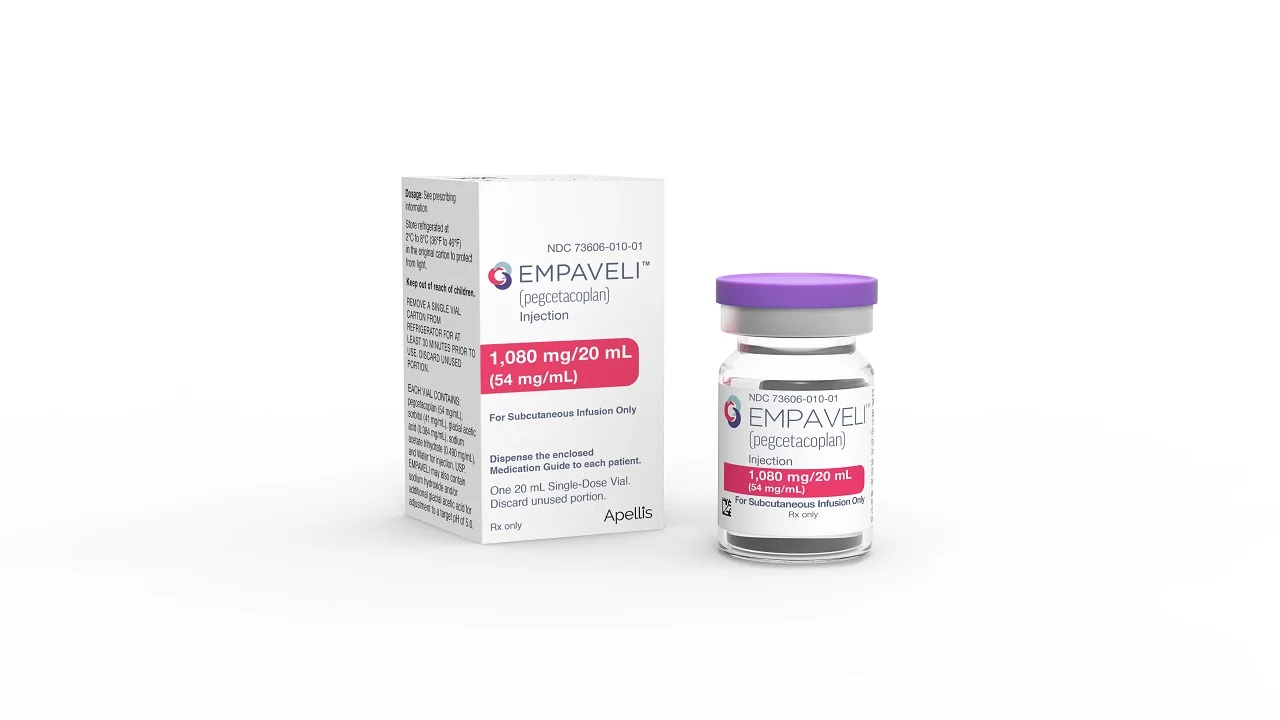Apellis And Sobi Unveil Promising Phase 3 VALIANT Results For Pegcetacoplan
Apellis and Sobi's Phase 3 study shows pegcetacoplan reduces proteinuria in rare kidney diseases.
Breaking News
Aug 09, 2024
Simantini Singh Deo

In a significant breakthrough for patients with rare kidney conditions, Apellis Pharmaceuticals, Inc. and Sobi® (STO: SOBI) have unveiled encouraging topline results from their Phase 3 VALIANT study. This clinical trial explored the efficacy of systemic pegcetacoplan in treating C3 glomerulopathy (C3G) and primary immune complex membranoproliferative glomerulonephritis (IC-MPGN), both of which currently lack approved therapies.
The VALIANT study achieved its primary goal, revealing a
noteworthy 68% reduction in proteinuria (log-transformed ratio of urine
protein-to-creatinine) for patients receiving pegcetacoplan compared to those
on a placebo, in conjunction with standard background therapy, at Week 26
(p<0.0001). These results held steady across diverse patient demographics,
encompassing both adolescent and adult groups, as well as individuals with
native and post-transplant kidneys.
Moreover, pegcetacoplan showcased statistical significance
in key secondary outcomes, including a composite renal endpoint that assessed
both proteinuria reduction and the stabilization of estimated glomerular
filtration rate (eGFR). Additionally, the treatment achieved a notable 50%
reduction in proteinuria from baseline levels. While histological endpoints
related to kidney biopsy results indicated nominal significance, eGFR
stabilization compared to placebo further underscores pegcetacoplan’s potential
as a game-changer for these challenging kidney diseases.
Carla Nester, M.D. MSA, FASN, lead principal investigator
for the VALIANT study and Jean E. Robillard M.D., professor of paediatric
nephrology, University of Iowa Stead Family Children's Hospital, said in a
statement, “As a clinician, I’m thrilled by these groundbreaking results, which
show that pegcetacoplan has the potential to significantly improve the lives of
patients with C3G and IC-MPGN, regardless of disease type, age, and transplant
status. Currently, many patients living with these rare diseases will
eventually require a kidney transplant or lifelong dialysis, so there is an
urgent need for a treatment that targets the underlying cause of these
diseases. These positive data are a major advance for the rare kidney disease
community.”
Jeffrey Eisele, Ph.D., chief development officer, Apellis,
“These results exceeded our already high expectations. Pegcetacoplan is the
first investigational therapy to show such a strong reduction in proteinuria in
C3G and IC-MPGN with supportive data across multiple measures of disease
activity. Building on pegcetacoplan’s approval in PNH, we look forward to
sharing these data with the FDA and working quickly to bring this treatment to
patients with these debilitating kidney diseases.”
Lydia Abad-Franch, M.D., head of R&D, medical affairs,
and chief medical officer, Sobi, "Today’s announcement further strengthens
our belief in pegcetacoplan’s potential to meet the critical needs of patients
with these severe and life-threatening kidney conditions. We remain committed
to progressing pegcetacoplan's development and expanding its reach, driven by
our steadfast mission to transform the lives of those affected by rare
diseases.”
The VALIANT study highlighted the favorable safety and
tolerability of pegcetacoplan, reinforcing its previously established profile.
Adverse event (AE) rates, including serious AEs and those leading to the
discontinuation of the study drug, were comparable between the pegcetacoplan
and placebo groups. Importantly, no instances of meningitis or severe
infections due to encapsulated bacteria were reported.
All participants who have completed the VALIANT study have
now enrolled in the VALE long-term extension study. Apellis is preparing to
submit a supplemental new drug application to the U.S. Food and Drug
Administration in early 2025, while Sobi plans to file a marketing application
with European Medicines Agency in the same year. Detailed findings from the
study are scheduled to be presented at an upcoming medical congress.
